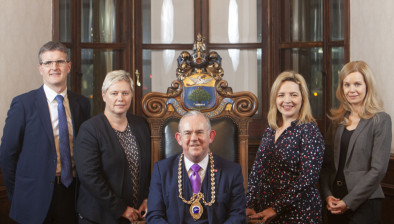Increasing number of UK firms expect to grow staff numbers, BCC survey finds
The percentage of UK businesses expecting their workforce to grow in the next three months rose from 19% in Q4 2020 to 27% in Q1, according to the latest Quarterly Recruitment Outlook published by the British Chambers of Commerce (BCC).

The figure is the highest percentage since Q1 2020 and signals a return to pre-pandemic levels more broadly.
The new figures show continued weakness in the job market in Q1, with 60% of the nearly 6000 businesses surveyed saying they had not attempted to recruit during the quarter. However, the proportion of firms expecting a decrease in their workforce dropped from 14% to 9%.
Recruitment during Q1 remained subdued with only 40% of surveyed firms seeking to recruit, however the picture varied significantly by sector. Only 20% of hotels and catering firms tried to recruit while retail and wholesaling also lagged at 34%. When it came to manufacturers and construction firms though, 50% and 54% respectively had attempted to recruit in Q1.
Of those attempting to recruit, the percentage of firms facing recruitment difficulties rose sharply from 53% in Q4 to 63% in Q1. Those reporting issues in finding staff were highest in the construction sector at 71%, up from 58% in Q4. in the retail and wholesaling sector, the percentage who encountered difficulties was only 56%, although this still represents an 8-point rise from the previous quarter.
The construction sector also had the highest proportion of companies expecting their workforce to grow in the next three months at 34%. Retail and wholesaling came in lowest here, with only 22% expecting workforce growth. Hotels and catering showed a more volatile picture, with 26% expecting their workforce to grow, although the proportion expecting to reduce their workforce was the highest amongst all sectors at 14%.
These figures come on the back of ONS statistics which recently showed hospitality among the sectors suffering the biggest job cuts over the past year, as well as people under 25 holding 54% of the payroll jobs lost in that time.
Jane Gratton, head of people policy at the BCC, said: “These new figures serve as a sharp reminder of how unevenly the jobs impact from COVID-19 has been distributed across different sectors, and the consequences this could have for different generations in the workforce.
“For inexperienced young people now entering the workforce, and those whose jobs have been lost during the pandemic, the labour market is particularly competitive. While the furlough scheme has helped to protect many jobs, the severe restrictions on retail, leisure and hospitality businesses have reduced entry-level employment opportunities, while difficult business conditions have seen thousands fewer apprenticeship opportunities created.”
She added: “The Kickstart initiative must be extended and funded well beyond December 2021, together with a more streamlined and efficient process for employers. Extending employer incentives would support businesses in creating more apprenticeship and traineeship opportunities for young people. These measures, together with a temporary cut in employer national insurance contributions, will support job retention and recruitment for young people and others in the labour market.
“Government must also ensure that the skills system is responsive to the needs of employers and has the flexibility to deliver high quality training solutions when and where needed.”









